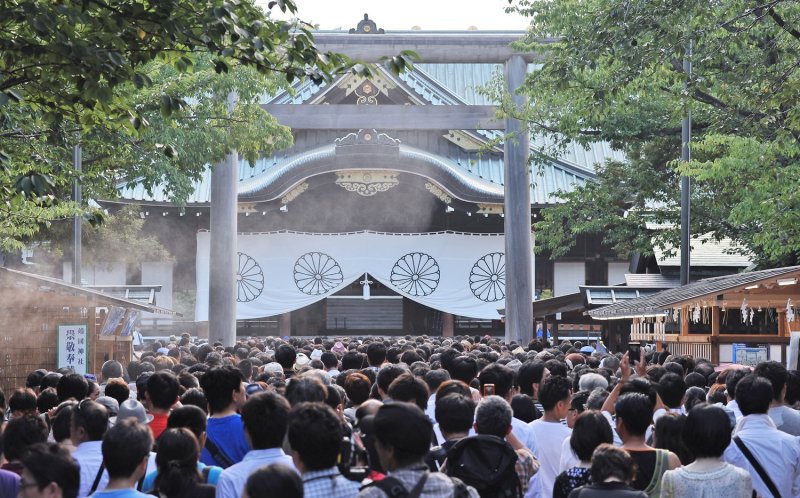Worshipers visit the Yasukuni Shrine in Tokyo, Japan, on August 15, 2013. The Yasukuni Shrine honors the 2.5 million Japanese war dead, and also houses a war museum that glorifies Japan's wartime past. Emperor Akihito's father Emperor Hirohito surrendered to allied forces on August 15, 1945. UPI/Keizo Mori |
License Photo
TOKYO, Oct. 18 (UPI) -- A Japanese government minister stirred a diplomatic hornet's nest Friday after he visited a shrine tied to the country's past wars, officials say.
The visit to the Yasukuni Shrine in Tokyo by Internal Affairs and Communications Minister Yoshitaka Shindo drew strong protests from China, Kyodo News reported.
Shindo was accompanied by 157 Japanese lawmakers.
The shrine is dedicated to Japan's 2.5 million war dead, including 14 class-A war criminals.
Shindo said he visited the shrine "in a private capacity to pay homage to those who died in the war and to pray for peace." He made an offering with his own money and said, "I don't think it'll develop into a diplomatic issue."
Chinese Vice Foreign Minister Liu Zhenmin made a "strong condemnation" of the visit to Japanese ambassador Masato Kitera, foreign ministry spokeswoman Hua Chunying said at a press briefing.
She termed Shindo's visit a "blatant attempt to whitewash" Japan's past militarism and to "challenge the outcomes of the war and post-war international order."
She described the shrine as a symbol of a period in which Japan committed atrocities against many of its Asian neighbors, China's state-run news agency Xinhua reported.
Japanese Prime Minister Shinzo Abe earlier said he would not visit the shrine this year in an attempt to calm tensions with China and South Korea, the British newspaper The Guarding reported.
Tokyo and Beijing both claim ownership of a chain of tiny islands in the East China Sea that Japan calls the Senkakus and China calls the Diaoyu. In another territorial dispute, Japan and South Korea are contesting sovereignty over the Takeshima islands, which Seoul calls the Dokdo islands.















